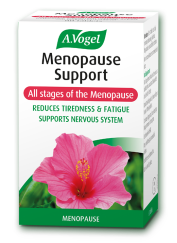An introduction to dizziness and menopause
During the menopause, women may experience brief, unexpected moments of dizziness, which can make them feel unsettled for a time, even after the sensation has eased. There are three types of sensation that can be experienced with dizziness: the feeling that everything is spinning or whirling; a feeling of loss of balance; or a feeling as if you are going to faint.
Dizziness may occur as a result of another menopause symptom such as anxiety or panic attacks. If suffering from these symptoms, breathing and heart rate levels become rapid and unsteady. This change in breathing can disturb the flow of blood and oxygen to the brain, causing dizziness.
Why does menopause cause dizziness?
The exact causes of dizziness, like so many menopause symptoms, are unclear. However, during the menopause, your body goes through huge hormonal changes. These can result in a variety of symptoms including dizziness.
Oestrogen and progesterone are the female hormones that change the most during the menopause, and are the reason behind most of the symptoms. As the levels of these hormones change they can have an effect on circulation and blood vessels, resulting in bouts of dizziness as blood pressure fluctuates.
There are other symptoms of the menopause that can also make a woman feel dizzy, including anxiety, hot flushes, stress or panic attacks. The root of these problems can usually be assigned to hormone fluctuations as well.
In some cases, dizziness may not be related to the menopause, but be triggered by another medical condition or health problem such as low blood sugar, low blood pressure, low iron levels, dehydration, viral infections or ear infections. If this is the case then you will need to seek medical advice to clear the problem.
What home remedies are there for dizziness?
It is worth trying these simple home remedies to see if these ease your symptoms:
- Make sure that you are properly hydrated - drink about a litre and a half of water a day. Many people do not realise the importance of keeping hydrated. During the menopause, hormone fluctuations may change your body’s ability to retain water, so you may find yourself having to drink more water
- Don’t stand up too quickly – jumping up or moving your head suddenly can lead to a bout of dizziness. If you take things gently for a while, you may find your symptoms easing
- If you are anaemic then a natural iron tonic will be helpful
- Some people have found relief from adding ginger to their diet to stimulate circulation.
If you still feel dizzy after implementing these home remedies, then it is worth seeking medical advice. Dizziness can be a serious condition, particularly if it doesn’t go away after a few days. Your doctor will be able to confirm if your dizziness is a symptom of the menopause, and may prescribe treatments specifically for dizziness, or hormone treatments, such as HRT. Before taking any medication you should discuss the side effects with your doctor to establish if it is the best treatment for you.
Are there herbal remedies to help me?
It is important to rule out other causes of dizziness and you may need to speak to your doctor in order to achieve this. If it has been established that your dizziness is related to the menopause, the first thing you could do is to use a supplement containing soy isoflavones which can help to stabilise your hormones.
 "Menopause support tablets have eased my problems and have helped me sleep better at night. I would recommend them to any one suffering the effects of the menopause."
"Menopause support tablets have eased my problems and have helped me sleep better at night. I would recommend them to any one suffering the effects of the menopause."
![]()
Read more customer reviews
Frequent and heavy periods can lead to excessive blood loss and dizziness. If this is the case with you, speak to your doctor.









